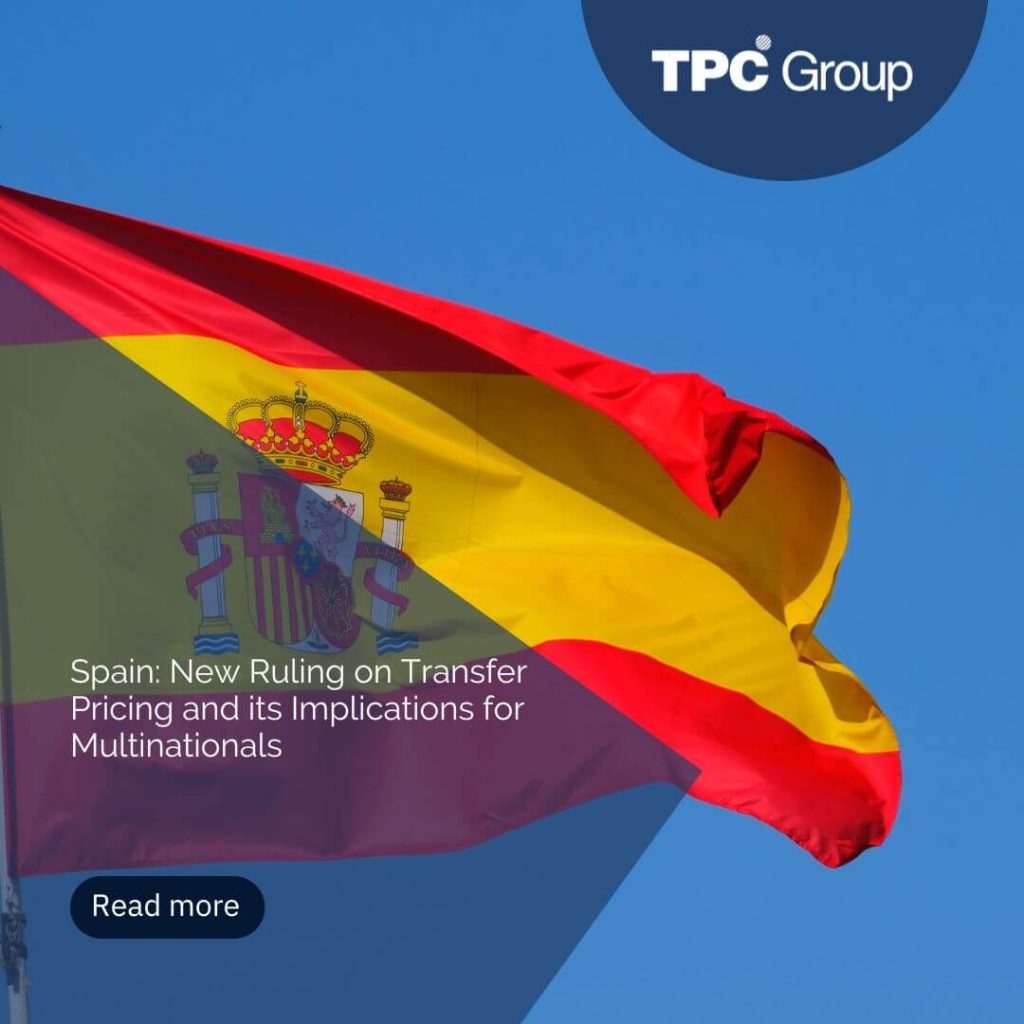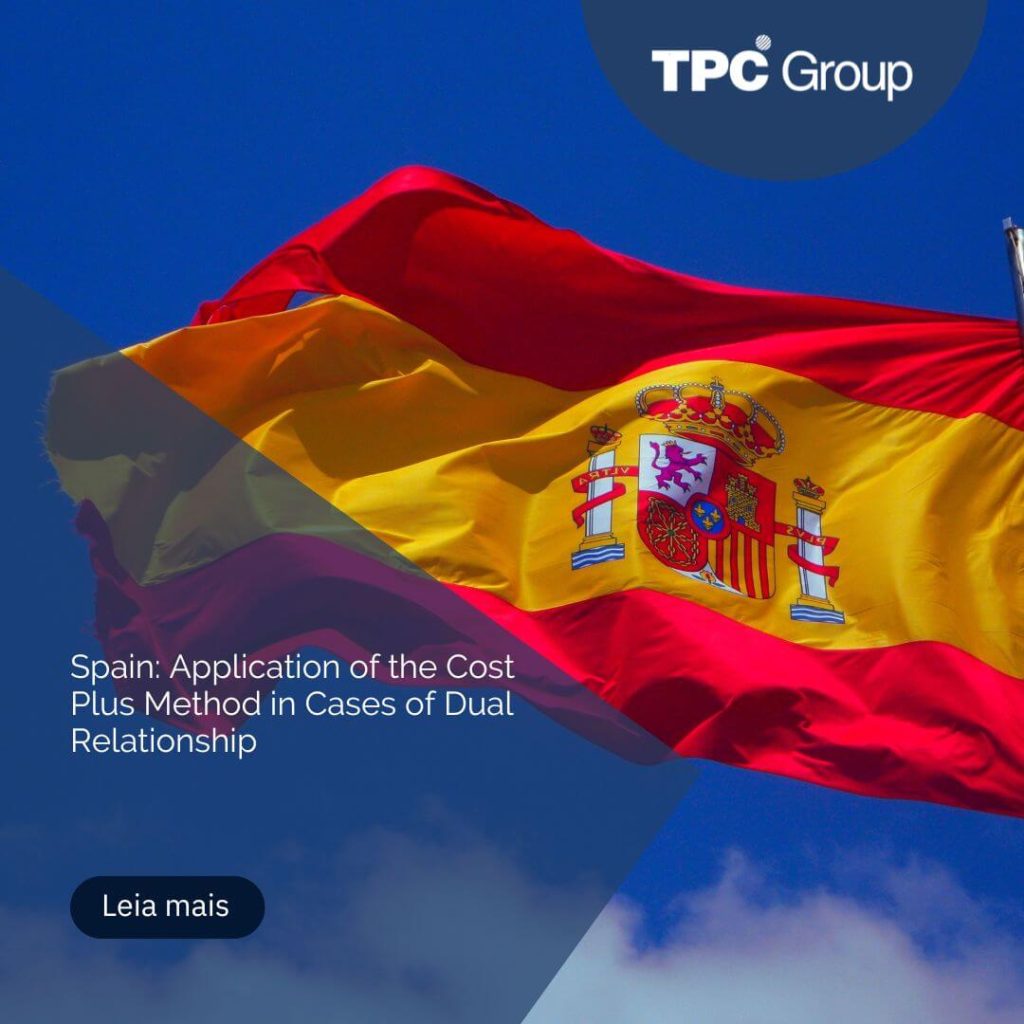Concept and Regulation in Spain
The Transfer Pricing legislation in Spain is regulated in Article 18 of Law 27/2014 (the Law) or the Corporate Tax Act and Articles 13 to 36 of the Regulations approved by Royal Decree 634/2015.
The formal obligations are established in this area by the latter regulations, such as the necessary documentation supporting that such transactions are at market value, considering the guidelines set forth by the Organization for Economic Cooperation and Development (OECD) in Action 13 of the BEPS (Base and Erosion and Profit Shifting) Plan.
Likewise, by the Orden HFP (Orden ministerial del Ministerio de Hacienda y Función Pública – Ordinance of the Ministry of Finance and Public Function) /816/2017, the informative affidavit on transactions with related parties and tax havens was established, which along with the rules already mentioned above establish a framework for the Transfer Pricing regime in this country.
Arm’s Length Principle: Concept
The Arm’s Length Principle is based on prices or values agreed upon in transactions among related parties at market value.
This principle is also regulated in the Transfer Pricing legislation of Spain, in numeral 1, Article 18 of Law 27/2014, or the Corporate Tax Act.
The paragraph above states that transactions performed among related persons or entities must be valued at market value, which is the value agreed upon among independent parties.
Definition of Related Parties in Spain
According to numeral 2 of Article 18 of the Law, it shall be understood as related persons or entities when they are in the following situations:
- The partners or participants related to the entity.
- The entity and its managers, except for the remuneration they receive by performing their functions.
- The entity and the spouses or persons in kinship, either directly or collaterally, by consanguinity or affinity up to the third degree regarding the partners or managers.
- Two entities as long as they belong to a group.
- One entity is related to the managers of another as long as the latter belongs to the same group.
- One entity is related to the other when the former indirectly owns at least 25% of the latter capital.
- Two entities that share the same partners or participants, or their spouses or persons in kinship, as indicated in point three above, and these directly or indirectly participate in at least 25% of the capital.
- A company resident in Spain related to its permanent establishments abroad.
Regarding the definition of group, the Regulation states that such a group exists when an entity has or may have control over another or others, as established in Article 42 of the Spanish Commercial Code.
Transfer Pricing Methodology in Spain
According to Article 19, numeral 4 of the Law, one of the following five methods may determine the market value of the related party transactions:
- Comparable Uncontrolled Price method.
- Cost Plus method.
- Resale Price method.
- Profit Split method.
- Transactional Net Margin method.
It should also be noted that the choice of any of the methods indicated above should consider the circumstances, the nature of the transaction, the information available, and the degree of comparability of the transactions.
If any of the methods apply, the taxpayer may employ other valuation methods according to the Arm’s Length principle.
Comparability Analysis in Spain
In order to determine whether two or more transactions are comparable, Article 17, numeral 2 of the Regulations of the Corporate Tax Act indicates to consider the following circumstances:
- The specific characteristics of the transaction.
- The functions assumed by the parties to the transaction, as well as the assets and risks involved.
- Contractual terms.
- The economic circumstances that governed the transaction.
- Business strategies.
Transfer Pricing Documentation in Spain
Article 18, numeral 3 of the Law states that taxpayers must keep the documentation available, established by Regulation to the Tax Administration when required to support the prices in the related party transactions are valued according to the market.
In this regard, Articles 13 to 16 of the Regulations indicate the documentation to be kept under the Law.
Standardized Document
According to numeral 4 of Article 16 of the Regulation, those persons or entities that do not exceed 10 million euros may file a standardized document to comply with the specific documentation required by the Regulation above.
Simplified Taxpayer Document
According to numeral 3 of Article 18 of the Law and Article 16 of the aforementioned Regulation, taxpayers whose net turnover exceeds 10 million but less than 45 million may file the specific documentation in a simplified format.
This documentation shall have the following content:
- Description and amounts of related party transactions.
- Tax identification data of related parties.
- Identification of the valuation method.
- Comparable transactions obtained and intervals derived from the employed method.
Specific Documentation of the Taxpayer
Article 16, numeral 4 of the Regulation states that the Specific Documentation of the Taxpayer will apply to taxpayers whose net turnover exceeds 45 million euros, including permanent establishments of non-resident entities in Spain.
This documentation must include information such as company structure, description of the business activities, main competitors, detailed information on related transactions, and economic and financial information of the taxpayer.
It should be noted there are exceptions to the obligation of having that information, such as transactions performed with the same related party without the total consideration exceeding the amount of 250,000 euros, according to the market value.
Group Documentation
This documentation will apply, as well as the specific documentation, for those taxpayers whose net turnover exceeds 45 million euros, according to numeral 2 of Article 15 of the Regulation.
The information to be disclosed includes the structure and organization of the group, the activities, information related to intangible assets of the economic group, and financial and tax information thereof.
Country by Country Report
Article 14, numeral 1 of the Regulations states that such Report shall apply to the following entities:
- Entities resident in Spain that are the parent company of the group.
- Entities domiciled in Spain, directly or indirectly dependent on a company not domiciled in Spanish territory, which in turn does not depend on another, provided that:
- There is no Country-by-Country Report requirement or similar in the country of residence of the foreign entity.
- There is no information exchange agreement with the country in which the foreign entity resides.
- Systematic non-compliance with the above agreement and communication of the Spanish Tax Administration to its dependent entities.
Likewise, dependent entities resident in Spain will not be required to file a Country-by-Country Report when the parent company of the multinational group has appointed another member entity abroad as long as the latter is resident in a European Union country.
The parent companies of multinationals with a consolidated net turnover worldwide exceeding 750 million euros must file the Country-by-Country Report at their tax domicile of residence.
Regarding the deadline for filing the above Report, the Regulation states that it will expire twelve months after the end of the tax period.
Proposed European Union Transfer Pricing Directive
On September 12, 2023, the European Commission published a proposal for a directive to harmonize Transfer Pricing rules in the European Union Member States.
Objectives of the Proposal
The proposal seeks to:
- Harmonize Transfer Pricingregulations in the EU, reducing discrepancies between countries.
- Ensure uniform application of the arm’s length principle in transactions between related companies.
- Reduce compliance costs for companies and mitigate double taxation risks.
- Prevent aggressive tax planning practices through the misuse of Transfer Pricing.
Main Components of the Proposal
- Incorporation of the arm’s length principle into EU law, ensuring that transactions between related entities are carried out at arm’s length values.
- Uniform definition of “related entity”, establishing a 25% participation threshold for determining relatedness, aligning criteria between Member States.
- Simplified procedure for correlative adjustments, facilitating the resolution of discrepancies in the valuation of transactions between countries.
- Establishment of common standards for comparability analysis, determination of arm’s length ranges and transfer pricing documentation requirements.
Implementation and Enforceability
Member States are expected to implement these standards by December 31, 2025, and they will be applicable as of January 1, 2026.
Tax Havens and Market Value in Spain
Article 19, numeral 2 of the Law states that transactions performed with persons or entities resident in tax havens must also be at market value.
This article, in turn, states that those performing transactions with these entities must have the documentation indicated in numeral 3 of Article 18 of the Law, as described in the preceding paragraphs, considering the specifications indicated in Article 37 of the Regulations.
Informative Affidavit of Transfer Pricing in Spain
Ordinance HFP/816/2017 establishes the requirement to file an Informative Affidavit of related party transactions and transactions related to tax havens through Form 232.
According to Article 2 of the above Regulation, the following taxpayers must do so:
- Perform transactions with the same related party as long as the total amount of the consideration exceeds 250,000 euros.
- Perform specific transactions as long as the total amount of each transaction in the tax period exceeds 100,000 euros.
In the case of transactions with tax havens, Form 232 must be filed regardless of the amount.
The filing deadline is the following month, after ten months from the end of the fiscal year.
Transfer Pricing Penalties in Spain
Regarding the filing non-compliance with the formal Transfer Pricing requirements or incomplete filing, the Regulation states for no adjustment, the penalty will be 1,000 € for each omitted, inaccurate, or false data and 10,000 € for each set of data.
In the case of an adjustment, the fine shall amount to 15% of the correction made.
The calculation of maximum penalties consists of the lower of the following two amounts: 10% of the combined amount of the related-party transactions and 1% of the net amount of the turnover.





